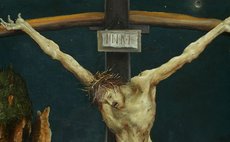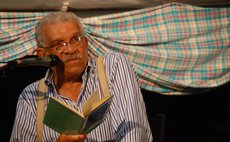Story- telling
There is relatively a lack of story-telling in the Caribbean. The truth is that we are a dislocated people. Although we live in the Caribbean, we seem to have one foot in the land of our birth and the other in the outside world. We do not have firm root in our homeland. We move out of the region with remarkable ease and settle in foreign lands with great facility. We even embrace their life-style, their manner of speech and their culture.
It seems that is the reason for the lack of story-telling in our region and our own country. Story-telling comes from the heart of the people. It comes from a people who are truly embedded in a certain geographical space, in a certain culture. Story-telling is related to the sorrows and joys, disasters and triumphs, fears and hopes, the agony and ecstasy of a people.
Story-telling, like song and dance, becomes an expression of and even a criticism of a certain culture. It is a sort of definition of the people. It is a sort of tapestry, a kaleidoscope, a work of art that is innate to human beings in every age and in every part of the world.
A story is one of the most powerful ways of communicating values. It has the ability to bring people to play a particular role in what is being shared with them. Unlike what occurs in a speech, a story involves interaction. A story is what Michael Mc Hulan describes as a "hot medium". The one who listens to a story is not a passive partner. He is an active participator. The story is the best means of bringing people face to face with the realities of life. It invites them without any coercion or manipulation to come to terms with burning issues. The story is the most compelling and fascinating way of getting people to understand and challenge the world in which they live.
Children, in particular, have little inclination for abstract thinking. They give their full attention and display a certain enthusiasm as soon as you begin to relate a story. This is because story-telling is the most natural means of communication. As such, it should be used more often in the education of children.
To tell a story, you must have a point of departure and a purpose, a goal in view. This means that you must know yourself. You must have a certain self-understanding. If not, you have nothing important to say; you have no message to impart.
The world has been gifted with many famous stories, like Aesop's Fables, Arabian Knights, The Tales of La Fontaine, John Bunyan's The Pilgrim's Progress. They have been an inspiration to the world because they have a point of departure and a goal in sight. This is of the very essence of a good story. Stories are not related merely for entertainment but rather for inspiration and social transformation.
Mrs. Dorothy Leevy, a professional educator with much experience, is a person well-equipped to do story-telling. She is a person who has a deep self-understanding. Besides, as a secondary school principal and a family person, she has a firm grasp of the world in which she lives. She has been deeply immersed in the lives of young people.
A person, firmly rooted in the Dominican culture, in which she has spent all her life, she has been, as to speak, driven, like other great story-tellers to articulate the experiences of our people and in doing so share a part of her life. Additionally, she has the gift of confronting the painful realities of life, without being overwhelmed by them. This is very essential if a writer is not to lose her sense of balance.
Stories, like those related in 'Eden Restored' and, more recently in 'Look At Me, Father, See Me' have a profound message for us. They are not only inspiring, but very challenging. They reflect very much the prevailing culture. A writer is a very keen observer of reality. So is Mrs. Dorothy Leevy. She manifests this remarkably in her many stories.
No one can be a good writer without a fund of imagination. Of course, imagination has nothing to do with day-dreaming. We are referring here to a very important faculty of the mind. It is absolutely necessary for proper, constructive thinking. Imagination spurs creativity. As Carl Jung puts it, "The debt we owe to the play of imagination is incalculable."
Imagination is an essential gift in story-telling. A writer has a vision of life. This is often not a vision which is popular in the world as it exists. That is why a writer's role is often to challenge the existing society and to present an alternative way of life.
Mrs. Dorothy Leevy has the advantage of having a husband, Mr. Alfred Leevy, who is an accomplished writer. He has published several books. One can imagine that they both often share ideas before they are committed to publication. Dominica owes a tremendous debt to both of them. May all our people, particularly our schools, benefit from their literary production.
Story-telling is certainly not alien to our culture. However, with technological advancement, we have tended to abandon a few traditional customs. Our creole folktales have played a tremendous role in our society. They have been bearers of native wisdom long before most of our people had attained a certain measure of literacy. We need to revive the art of story-telling. To give the story its full import, we need to bear in mind, primarily, that a story is not meant merely to be read quietly but to be related, that is, it must be read aloud for others to listen.




